
A Tibetan's turn from a herdsman to top hi-tech enterprise helmsman
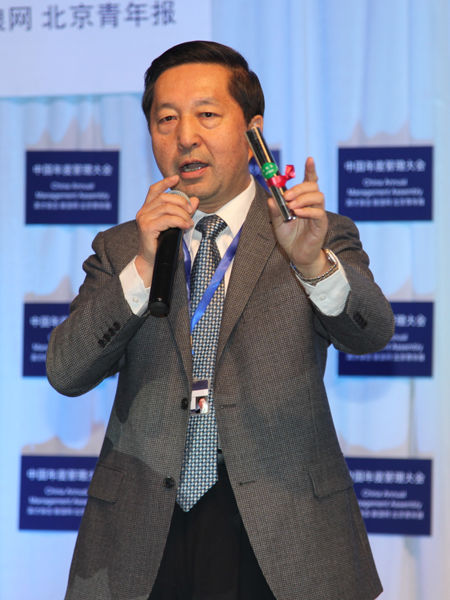
Tsering
Herdsman’s life
Chemistry, physics and geography, for the young Tsering, were once nothing but subjects he is familiar with on the grassland-chemistry for insecticide, physics for tractor while geography was likely to be the endless grassland.
For over half a century, a majority of Tibetans have been inclined to take up historical and cultural research with few or even none in the technological field.
"My dad was China’s first batch of cadres of ethnic minorities, who knew clearly the importance of technology, so he hoped I could be one of of the pioneers," said Tsering.
As his father wished, Tsering is now chairman of China Iron and Steel Research Institute Group (CISRIG), one of the first 103 pilot innovative enterprises in China.
Born in 1957 in Xiahe County of Gannan Tibetan Autonomous Prefecture in southwest China's Gansu Province, at the request of his father, Tsering became a herdsman in the poverty-stricken Maqu pasturing area around 300 km away from his home after his graduation from the middle school.
Tsering said it was a laborious but meaningful time since it not only gave him a chance to experience the hard life of rural people but also made him a hard-working man with a positive altitude, which made him so outstanding.
In 1975, he was sent by his father to the research institute of agricultural and pasturing machinery, the then highest institute in Gannan, after two years of hard work in Maqu County.
In the following years, Tsering worked as welder, latheman and locksmith -neither a degage cowboy as he had expected nor highly qualified intellectual as his father wished.
Fate changes
In 1977, the Chinese government resumed the National College Entrance Examination (NCEE), commonly known as "gaokao", changing destinies of millions of Chinese youth,including Tsering's.
"At that time, it was believed that physics was the supreme of sciences and only the brilliant people have the ability to master it." Tsering said in his application form for NCEE the Lanzhou University known for physics. It was his first choice while he was finally admitted by his last choice - the Northeastern University.
Tsering explained, with high scores, he was first matriculated by the Northeastern University whose admission requirement was higher than the Lanzhou University, which thus changed his life.
Four years in the Northeastern University, Tsering found a different philosophy emerging in his mind.
He came to realize that the culture and lifestyle vary with different ethnic minorities and with different religious belief. And for the first time, he knew that modern science and high-tech can change the people's life.
MBA study in the U.S.
After his graduation, Tsering was assigned to the former Central Iron and Steel Research Institute (CISRI for short, now CISRI-Group), where he has been displaying his great talent for over 30 years.
It was his second visit to Beijing. "The first time when I visited Beijing, I stood by Xidan, the busiest shopping area in Beijing, enjoying the scene of cars coming and going with different traffic lights. I’ve never seen such a beautiful neon light in my hometown."
In the first year alone, Tsering, armed with professional knowledge, participated in and independently completed seven major programs. Whoever had difficulty, he would show up to back him/her up, desired for more practices, so he was called "firemen" by his colleagues.
In July 1984, Tsering was unanimously selected to attend a MBA program in the United State organized by the Chinese and American governments for his outstanding performance.
A total of 728 examiners across the country took the exam with only 40 being matriculated after two tests. Tsering became the first Tibetan with the MBA degree from the U.S.
Opportunities are always offered to those who are well prepared as a saying goes
In order to read the English scientific materials in his early years in Beijing, Tsering went to the English evening classes for four days a week.
"Actually I didn’t start learning English until the age of 25," said Tsering.
During his three years of studying for his MBA degree., Tsering, for the first time, got the exposure to the western culture, economy and management as well as their ways of thinking.
Fully playing unusual talent
After his return, Tsering was in charge of carrying out the economical contract liability mechanism in the company in order to improve the efficiency and keep the employees motivated, however, a strong counter-emotion waxed because the reformation increased their workload.
"It is a tough beginning. But I believe people will gradually come to realize the importance of reformation once they see the achievements and actual benefits," said Tsering.
One year after the reformation, the CISRI run under new mechanism garnered a very considerable income,so and people's old idea of planned economy started to crack.
In 1989, based on years of research, Tsering drafted a comprehensive report on the reform of the scientific and technical system in the research institutes, which was endorsed together with heads of 14 institutes in Beijing and submitted to the State Council.
His report aroused a high degree of attention from the State Council, which required Tsering's company to give a more detailed proposal.
Not long after Tsering handed in another report, elaborating on the reconstruction of the scientific and technical system, the import of foreign technology, and adjustment of tax policy in the scientific research organizations.
Tsering's proposal was adopted by the State Council, followed by the implementation of four major policies on science and technology, which played a very significant role in China's scientific reform.
With remarkable achievements, Tsering was promoted deputy director at the age of 35, the youngest in the CISRI's history. Now he is chairman of the Board and the helmsman of one of China's top SOEs.

With exceptional passion and outstanding leadership, Mrs. Catherine has dedicated herself to Tibet inbound tourism and China tour for 15 years. As one of the handful females who see great potential of Chinese inbound tourism, Catherine has made great contribution to promoting Tibet tourism and enhancing the employment of Tibetans and prosperity of local Tibetan community.
Over the years, she travelled overseas with Tibet Tourism Bureau many times to promote Tibet tourism. Currently, Catherine works as the marketing director of Tibet Vista, an opinion leader behind the whole team of Tibet Vista.
Related Articles & Posts

Latest Tibet Travel News
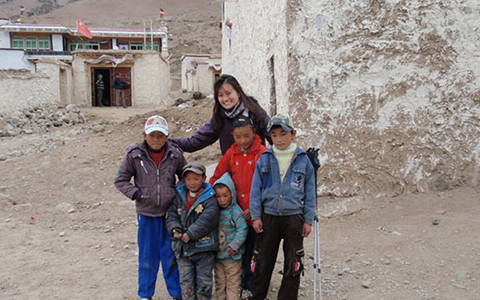
Tibet Vista: A Social Responsible Tour Organizer
Aug 14,2023

Tibetan Monks Debate in Drepung Monastery
Jun 10,2023

Tips for Traveling to Tibet in Spring
Feb 17,2022
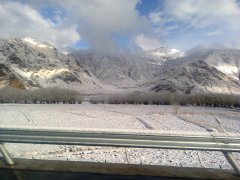
Snow Will Hit Qinghai-Tibet Plateau
Feb 17,2022
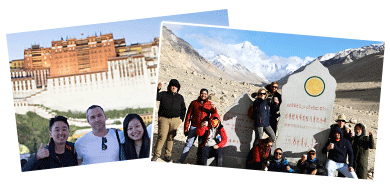

.jpg)


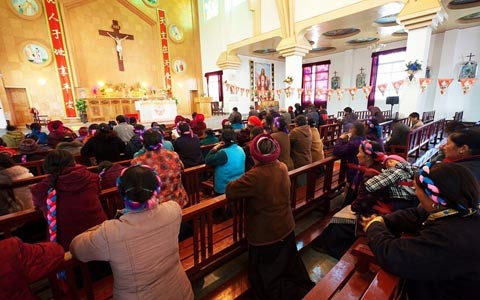

0 Comment ON "A Tibetan's turn from a herdsman to top hi-tech enterprise helmsman"